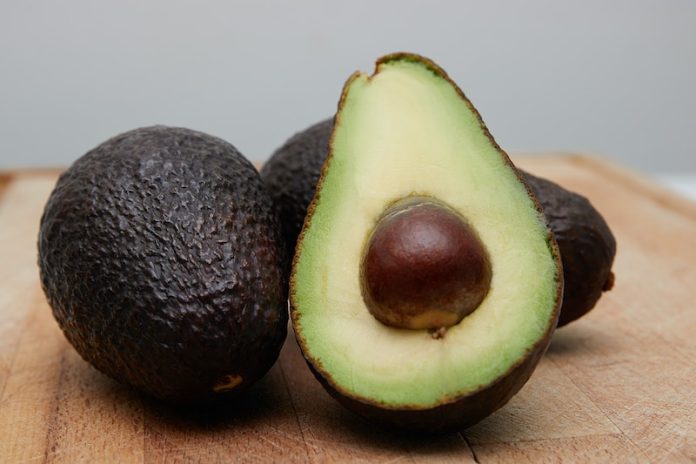
Scientists from Pennsylvania State University found that a moderate-fat diet with avocado could help reduce ‘bad’ cholesterol in overweight and obese people.
Raw avocado flesh is 73% water, 15% fat, 9% carbohydrates, and 2% protein.
In a 100-gram reference amount, avocado supplies 160 calories, and is a rich source of several B vitamins and vitamin K, with moderate contents of vitamin C, vitamin E, and potassium.
Avocados also contain phytosterols and carotenoids, such as lutein and zeaxanthin.
Avocados have diverse fats. About 75% of an avocado’s energy comes from fat, most of which is monounsaturated fat as oleic acid. Other predominant fats include palmitic acid and linoleic acid.
Previous research has found that avocados are a nutrient-dense source of monounsaturated fatty acids (MUFA) that can replace saturated fatty acids in a diet to lower low-density lipoprotein (LDL) cholesterol.
LDL cholesterol is sometimes called the “bad” cholesterol because a high LDL level leads to a build-up of cholesterol in your arteries.
High-density lipoproteins (HDL) cholesterol is called “good” cholesterol because it absorbs cholesterol and carries it back to the liver.
The liver then flushes it from the body. High levels of HDL cholesterol can lower your risk for heart disease and stroke.
In the study, the researchers examined the effect of eating avocado on heart disease risk.
They tested 45 overweight or obese people, who had high LDL cholesterol levels.
These people were assigned to three cholesterol-lowering diets for five weeks each: a lower-fat diet and 2 moderate-fat diets that provided similar foods.
The avocado diet included one fresh Hass avocado (136 g) per day, and the moderate-fat diet mainly used high oleic acid oils to match the fatty acid content of one avocado.
Oleic acid can be found in flaxseed oil, evening primrose oil, olive oil, pecan oil, canola oil, peanut oil, macadamia oil, sunflower oil, grape seed oil, sea buckthorn oil, and sesame oil.
The team found that in people on the avocado diet, the reduction in LDL cholesterol was greater than those on the other two diets.
Furthermore, only the avocado diet decreased LDL particle number, small dense LDL cholesterol, and the ratio of LDL/HDL.
Small dense LDL is more likely to leave fatty deposits in the blood. Having fatty deposits in the blood means that a person may be at higher risk of developing certain conditions, such as: heart disease and diabetes.
The team says eating one avocado per day as part of a moderate-fat, cholesterol-lowering diet could help lower “bad” cholesterol, especially for small, dense LDL.
The findings demonstrate that avocados can help protect heart health and should be included in a hearty diet.
The research is published in the Journal of American Heart Association and was conducted by Penny M Kris-Etherton et al.
Copyright © 2022 Scientific Diet. All rights reserved.








